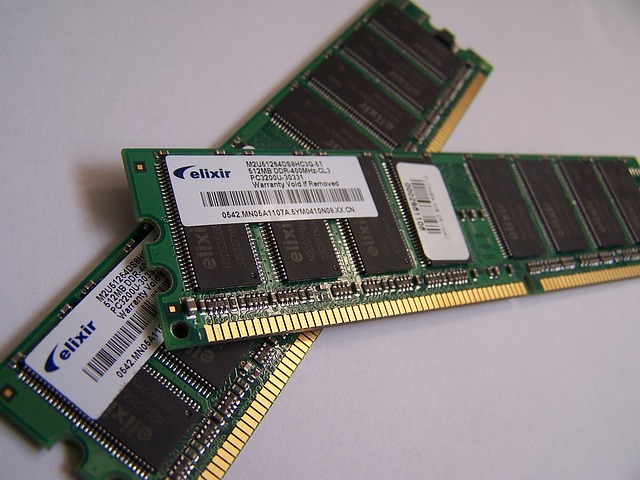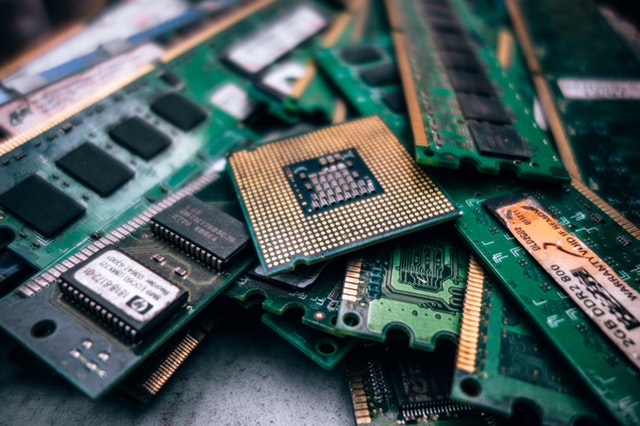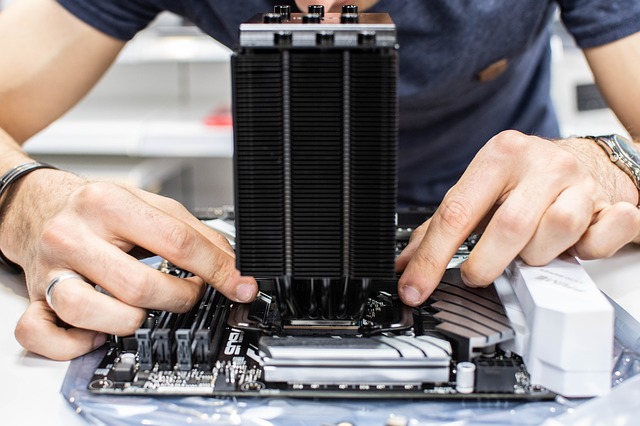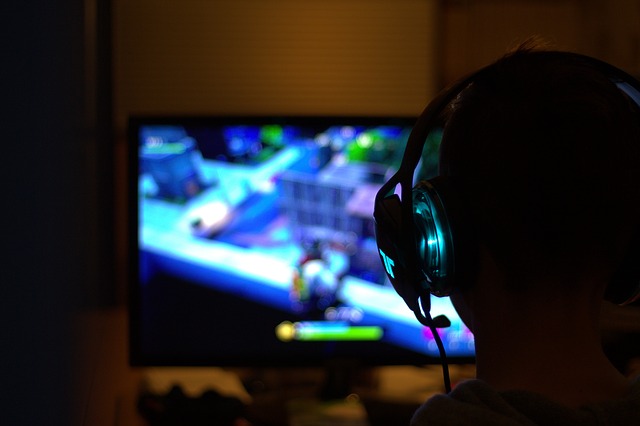Whether you're breaking into the world of gaming or switching from console to PC, a crucial question to ask yourself is "how much RAM do I need for gaming?" You have to make sure each component is powerful enough to work with all the others. You need to consider the minimum requirements for the games you're interested in, how much RAM you need for the performance you want to get out of your game, and how to future-proof your rig.
A lot of factors go into figuring out exactly how much RAM you need for gaming. However, gamers today have it much easier than gamers a decade ago. Information about how much RAM is required for gameplay is more readily available than it was in the past, and memory is cheaper to boot. There may be more manufacturers, but it is easier than ever to read reviews on the best brands. Today, we will discuss everything you need to know about RAM and how it affects your gameplay.
What Is RAM?

image via: pixabay.com
Slow down a moment. "How much RAM do I need for gaming?" is a pretty common question to ask, and it's probably what your mind immediately leaps to when you think about computer memory. Before we talk about how much RAM you need, though, you should understand what RAM actually is.
RAM is an acronym that stands for Random Access Memory. It is one of the most important components of any gaming rig. Without enough RAM, your gameplay will slow to a crawl, if it runs at all. In short, RAM is an impressively fast type of computer memory that temporarily stores data your PC immediately needs to run, as well as what it might need in the near future. This is in stark contrast to your hard drive, which stores data long term but reads that information very slowly.
How Does RAM Affect Gaming?
When you game, temporary files are often stored and swapped on your computer. This task falls on your computer's RAM because it is so much faster than your hard drive. If your computer runs out of RAM while you are gaming, your hard drive's "swap file" will be used. However, you will experience significant lag time and your performance will suffer greatly. A half second of lag can be the difference between being the last man standing in an FPS or having your head blown off.
How to Pick the Best RAM
The three most important factors to consider when picking out RAM for gaming are your budget, the capacity, and your choice of motherboard. First, consider how much you can afford and are willing to spend on gaming. New games nowadays will run you around $60 each, sometimes up to $80 depending on the retailer or version of the game.
When all your friends are playing the newest Call of Duty, you don't want to have to wait until it goes on sale and they have long since lost interest and moved on to the next newest thing. The worst thing you can do when building a rig is to run out of cash and let your computer sit unfinished. Purchase a solid CPU and GPU before defining your budget for RAM.
The next most important thing to consider when picking out RAM for gaming is future-proofing your rig. Do you plan to use your gaming PC to stream Hulu or Netflix and run TeamSpeak or Discord while gaming?
You can have solid gameplay if you have only one monitor. However, will you be using two or three monitors in the future so you can multi-task? Will these be 4K monitors that will display games demanding a solid GPU and super fast memory? If you anticipate ramping up the number of tasks your computer will have to perform and foresee games requiring more RAM in the future, do not invest in less than 12 GB of RAM.
Finally, consider your motherboard. You do not want to purchase the most expensive RAM and find out that it does not fit into your rig. A good general rule is opting for 1.2 volt DDR-2133 or 1.5 volt DDR3-1600 modules with CAS 15 timings. This is the ideal route to take in most situations, because Intel's Skylake and X99 platforms support DDR memory sticks universally. Most motherboards on the market today support DDR3 modules.
The biggest problem gamers face when purchasing ultra-fast memory kits is that it takes altering your motherboard's firmware's manual configuration to get the most performance out of the modules. Even more important, if you do not complete this manual configuration, or if you make a mistake, you face the risk that your performance levels will be dropped to even lower than what a simpler RAM component would offer.
What Options Are Available?

image via: pexels.com
Most computers you pick up from a big-box store come with either 4, 8, or 16 GB of RAM. People who custom-build their PCs for gaming and understand how much RAM they need for high-end gaming build PCs with 32, 64, or even 128 GB of RAM.
What Does All This Mean?
Standard desktops and office computers, as well as computers still running a 32-bit operating system, generally 4GB of RAM. However, this is not nearly enough RAM to game in 2019. When asking how much RAM you need for gaming, the answer will never be less than 8 GB. This amount of memory will allow your PC to operate most games fairly smoothly. However, graphical quality may suffer when playing newer games with more in-depth worlds.
As long as your PC is not running memory-heavy programs in the background, you will probably not run out of RAM with 16 GB of RAM. At 16 GB, you start to future-proof your gaming rig and prepare your PC for 4K gaming. However, it is hard to predict how much RAM you might need for gaming in the future, particularly with 4K computer monitors and 4K games becoming ever more commonplace.
If you do not want to upgrade your computer in the near future, we recommend investing in 32 GB of RAM. This is particularly true if you are building a high-end rig. Keep in mind, however, that 32 GB of RAM is nowhere near the limit today. Motherboards built for gaming can easily support 64 GB of RAM. Top gaming rigs can even handle up to 128 GB of RAM.
How Much RAM Do I Need for Gaming?

image via: pixabay.com
You know what RAM is. You know why it's important. The thing is, you're probably still asking yourself "How much RAM do I need for gaming?". All the knowledge in the world won't do you any good if you don't actually know what you need. There's a simple question to determine that: "what kinds of games will I be playing?"
Create a list of all the games you want to play on your PC. Research the minimum specifications required to run them. Consider how much RAM you will need to prevent lag, and then consider how much RAM you need for the best graphics that your GPU (graphics processing unit) can deliver.
If you can afford it, you want no less than 12 or 16 GB of RAM for your gaming rig. However, we strongly recommend at least 32 GB of RAM. This will future-proof your rig so you will not have to purchase more RAM in the near future to be able to play new games.
Module Types
Nearly every motherboard on the market today supports dual-channel memory. When you start talking about high-end motherboards, you will find that they can even support quad-channel memory. When deciding how much RAM you need for gaming, it is important to keep in mind that having multiple RAM modules makes replacing RAM cheaper and easier in the event of memory failure.
If your computer is running on a single RAM module of 32 GB and it fails, your gaming rig will be out of service until you can replace the RAM. However, if you have a dual module of 16 GB each or a quad module of 8 GB each and one fails, you can still use your computer until you can replace the malfunctioned module.
Other Considerations
Many games can run with 4 GB of RAM, gut these are not the kinds of games that the most hardcore of gamers play. In 2019, the most common minimum RAM requirement is 8 GB. Some of these games will run on 4 GB of RAM, but the gameplay will suffer severely. If you can only afford 8 GB of RAM right now, your gaming rig should be just for gaming. Use your Task Manager to discover which programs are hogging the most RAM and terminate every single one of them that is not related to gaming.
The Bottom Line

image via: pixabay.com
When you're building a gaming rig, there are a few questions you have to keep in mind:
All of this boils down to a pretty simple suggestion: if you're serious about PC gaming and can afford it, invest in at least 32 GB of RAM, maybe even 64 GB. You can get by with less, but as games continue to become bigger and more intricate, having more RAM will let you future-proof your machine as best you can.
Having 62 GB of RAM, if your GPU is powerful enough and you have a 4K monitor, will allow you to get the most out of your game graphics. If you are building your computer from the ground up, put in a motherboard that allows for four modules of RAM, then install four modules with either 8 GB or 16 GB of RAM each.
featured image source: pixabay.com
Leave a Reply